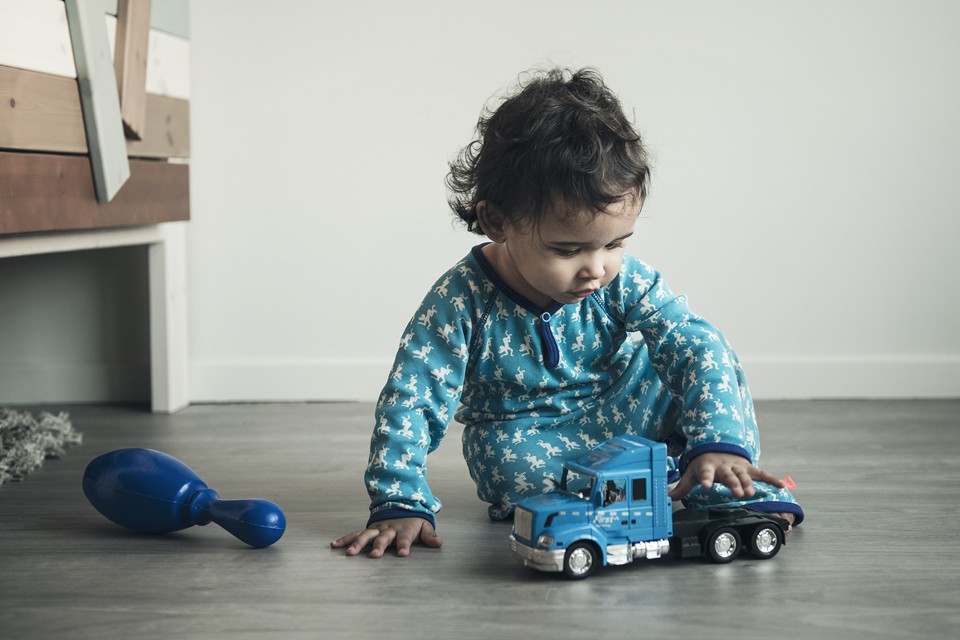 |
Babies Know When They Know
The Atlantic | 7 March 2016
When we take a test, we have
some idea of how well we’re going to do. When we start a task, we can
predict how long it’ll take us to finish it. When we field a question,
we can judge whether we need to consult the oracle of Google. We can do
all of this because of a skill called metacognition—the ability to
reflect upon our own minds, to monitor their degree of certainty, to
have knowledge about our knowledge.
Now, a new study from Louise Goupil, Margaux Romand-Monnier, and Sid Kouider
at Paris Sciences et Lettres Research University suggests that we have
this ability from a very early age. Even twenty-month-old infants have
some sense of how well they remember the location of a hidden toy, and
they’ll ask for help if they’re uncertain.
That might not be
surprising to you but many previous studies have concluded that
preschoolers have terrible metacognition. They’ll claim to know what’s
hidden inside a box whose contents are a total mystery. Or they’ll say
they’re certain about which of two toys is hidden, when they only have a
50:50 chance of guessing the right answer. At that age, they suck up
knowledge at a breakneck pace, but they suck at reflecting on that
knowledge. They’re metaignorant, apparently.
Not
so, says Goupil. She thinks that these early results said more about
the experiments than the infants. Perhaps the tasks were just too hard
and the children “couldn’t report if they were sure or unsure because
they were just confused all the time,” she says. “And maybe they’re bad
at talking about their own mental states, but can reflect on their own competencies and knowledge if you ask them to do so non-verbally.”
So she designed a simple wordless experiment.
Her team invited 80 Parisian parents to bring their 20-month-old
infants to a lab, where Romand-Monnier played with them for a few
minutes. She then hid a toy in one of two boxes, either in full view of
the infant or behind an obscuring curtain. After a pause of 3 to 12
seconds, she asked the baby to point to the box that the toy was in.
Half the babies did so unaided. The other half had the option of
silently asking for help from their parents, by turning to them and
making prolonged eye contact.
The team found that the infants asked for help more often when the task was harder—when the memorization gap was longer (12 seconds versus 3 seconds), or when the toy was being hidden behind a curtain. And because of that, they got better results: The two groups of infants made the same number of right guesses, but those who could ask for help made far fewer wrong guesses. By correctly gauging their own uncertainty, they avoided errors by asking for help, and so improved their performance.
“It’s a whole lot of useful information that these babies compute.”
But here’s the thing, says Frith: The infants only showed metacognition when they were told they
could ask for help. “I would not have predicted that a clue would be
necessary,” she says. Perhaps that’s how the skill develops. At 20
months, infants have it but it’s latent, and they need a nudge to use
it. Later, they wield metacognition more readily. And after four years,
as per earlier studies, they understand what they’re doing enough to
talk about it.
“Our idea is that you have two components of
metacognition,” Goupil explains. There’s an implicit component that
allows organisms to reflect upon their own mental state, and is also
found in other animals. Then there’s an explicit component, which allows
us to communicate about our mental states, and that develops
over childhood. “The explicit aspects emerge slowly and thoughtfully
with verbal instruction, but the implicit aspects are built-in,” says
Goupil.
Her team has already tested even younger infants to work
out how early the skill develops. And she suspects that, as with walking
and talking, babies climb the metacognitive ladder at different paces.
After all, in their latest study, they found that fourteen infants never
asked for help, even when they could. They might be showing a kiddie
version of the Dunning-Kruger effect, or they might just have a weaker bond with their parents.
“That’s
a really interesting question for future research,” says Goupil. Do
children start reflecting on their own knowledge at different points?
Does that affect their ability to learn, or their performance at school?
Whatever the answers, it’s clear that metacognition, for such an
everyday skill, is one that we still have much to learn about. Maybe we
could all do with more metametacognition.


No comments:
Post a Comment